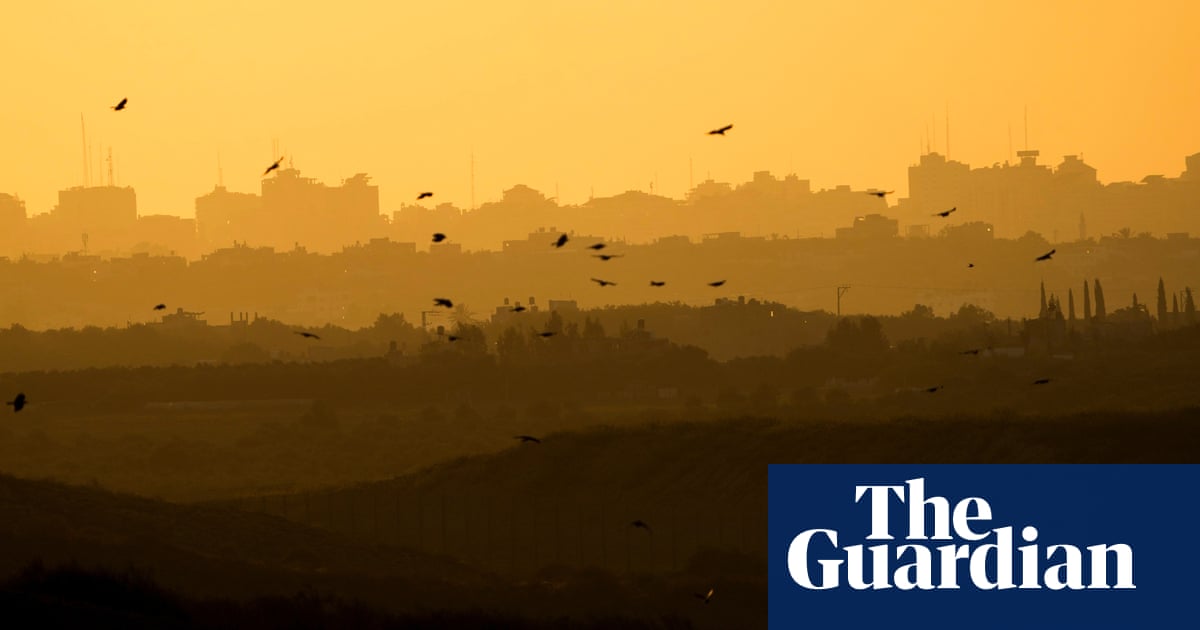
The future seems worrying, or rather catastrophic, to the Lebanese who have found themselves becoming burdensome guests in their own country.
It is a real tragedy that more than a million Lebanese have been displaced and uprooted within a few weeks following the Israeli military’s “advice” that comes with an “or else.”
The truth of the matter is that, whether they have been displaced or still have a roof over their head and still live between the walls of their home around them, the future is uncertain.
The future is indeed worrying when the likes of Antony Blinken and Amos Hochstein on one side and Abbas Araghchi and Mohammed Baqer Qalibaf on the other are toying with it. Both sides are waiting amid the countdown to the US presidential election and the accelerating search for a successor to Iran’s supreme leader.
I remind those who may have forgotten that Araghchi had been secretly negotiating an agreement regarding Iran’s nuclear program with a US delegation led by William Burns, the current director of the CIA, and Jake Sullivan, the current national security adviser, a few years ago in the Omani capital, Muscat. The problem, for the people of Lebanon, is that this skilled negotiator prohibits others from taking the kind of steps he allows himself to take.
Araghchi visited Lebanon a few days ago, as it was being ravaged by a destructive and deadly Israeli offensive. Instead of helping to contain the situation by calling for calm and sensible diplomacy, he undermined the efforts of parliament Speaker Nabih Berri (the top Shiite official in the country) and caretaker Prime Minister Najib Mikati. His visit was made after the two men had called for the implementation of the UN resolutions tied to Lebanon and separating — albeit temporarily — the Lebanese and Palestinian arenas.
Sensible politicians and observers understand the country’s need to catch its breath and reduce tensions
Eyad Abu Shakra
In light of what has happened and is happening in Lebanon — on the human, military and political fronts — sensible politicians and observers understand the country’s need to catch its breath and reduce tensions through responsible political initiatives. These initiatives should seek to safeguard whatever remnants of the state can be salvaged and to ensure that the Shiite community — a large segment of the Lebanese population that feels psychologically wounded, internally besieged and externally threatened — is not isolated.
Berri, for those who do not know him, hails from the resilient and troubled south, whose resilience has been tested decade after decade, generation after generation.
This seasoned politician has effectively allowed the country to absorb shocks for decades, as Tehran repeatedly thrust Lebanon into one misadventure after another and the Arab region into turmoil and strife. History has shown that the ultimate beneficiary of this turmoil is none other than Israel.
Unfortunately, since Iran effectively took the reins in Iraq, it has managed to reshape the landscape of the Near East, creating sectarian psychological chasms between the communities of the region. These chasms quickly translated into civil wars, sectarian sensitivities, divisions, assassinations and displacement. Moreover, through its incendiary rhetoric, which resonated with a disillusioned Arab audience, Iran laid the groundwork for exacerbating extremism, even through the front lines with Israel.
Indeed, opportunities for moderation in the region have withered away like leaves in the autumn. Meanwhile, fascist demagogues and messianic adventurists like Bezalel Smotrich and Itamar Ben-Gvir have strengthened their position in the fanatical Israeli right, so much so that it is moving ahead with population transfer policies under the leadership of a corrupt opportunist, Benjamin Netanyahu.
On Saturday, US Secretary of State Blinken reassured us — and we thank him for it — that Washington supports the Lebanese state’s efforts to assert itself against Hezbollah, without forgetting, of course, to affirm “Israel’s right to defend itself” against the party.
Moreover, in what seems to be an old-new American pitch for an Israeli-Lebanese peace agreement — on Netanyahu"s terms, of course — Blinken continued by saying: “We all have a strong interest in trying to help create an environment in which people can go back to their homes, their safety and security ... Israel has a clear and very legitimate interest in doing that. The people of Lebanon want the same thing. We believe that the best way to get there is through a diplomatic understanding, one that we’ve been working on for some time, and one that we focus on right now.”
Blinken concluded by emphasizing that Washington wants to help the Lebanese state build itself up after Hezbollah’s long-held sway. I believe that the vast majority of the Lebanese population wants to see the “state” take control of the political scene sooner rather than later. The Lebanese want the state to take control but, as the saying goes, the devil is in the details.
To begin with, Hezbollah’s condition is shrouded in uncertainty. It is not yet clear when the party will manage to rebuild its political apparatus and regain its capacity to take the initiative or operate independently of Tehran’s dictates.
Also, the “state” that most Lebanese may be dreaming of is not necessarily the same one that Netanyahu’s government seeks and that Blinken may have been hinting at.
Moreover, even if we were to assume that Washington is willing and able to play the role of a fair mediator in this regard, previous US initiatives and deals are not encouraging … not in Lebanon, Syria or Iraq, let alone Palestine.
To conclude, let us assume that Blinken, Hochstein and, behind them, President Joe Biden are approaching this matter with the seriousness and fairness we hope for. If so, what guarantees are there that a different US administration — one that will be voted in next month — will stay the course of the current administration, even if it included figures considered to be friends of Israel like Blinken and Hochstein?
Eyad Abu Shakra is managing editor of Asharq Al-Awsat. X: @eyad1949
This article first appeared in Asharq Al-Awsat.












